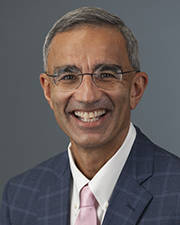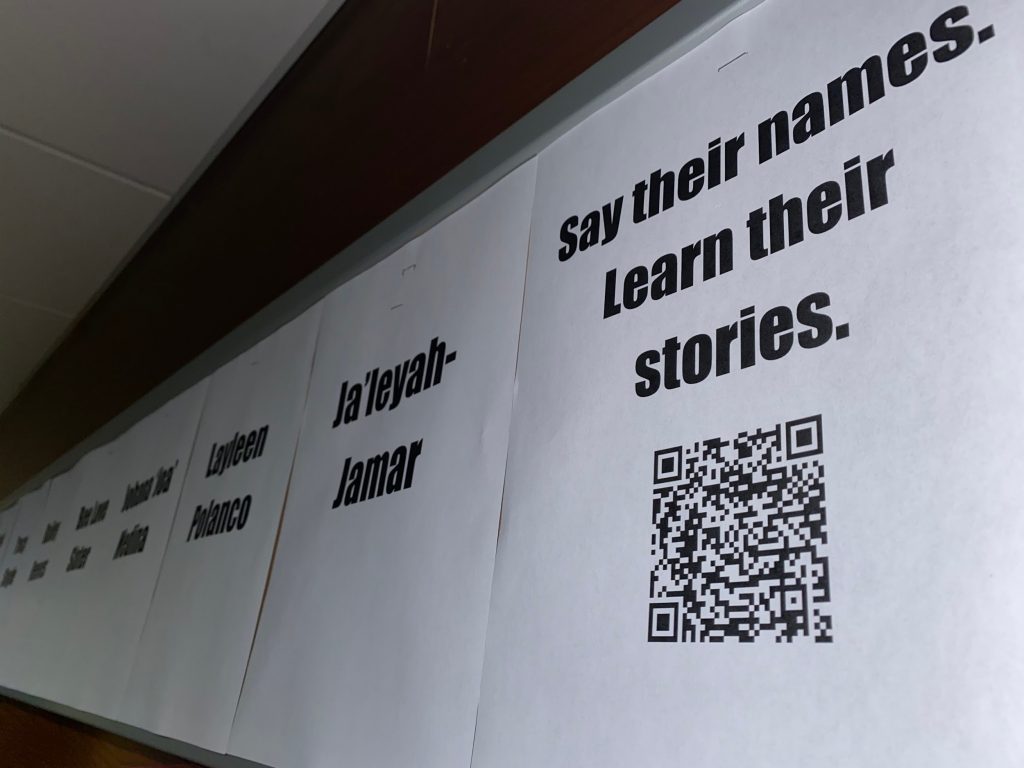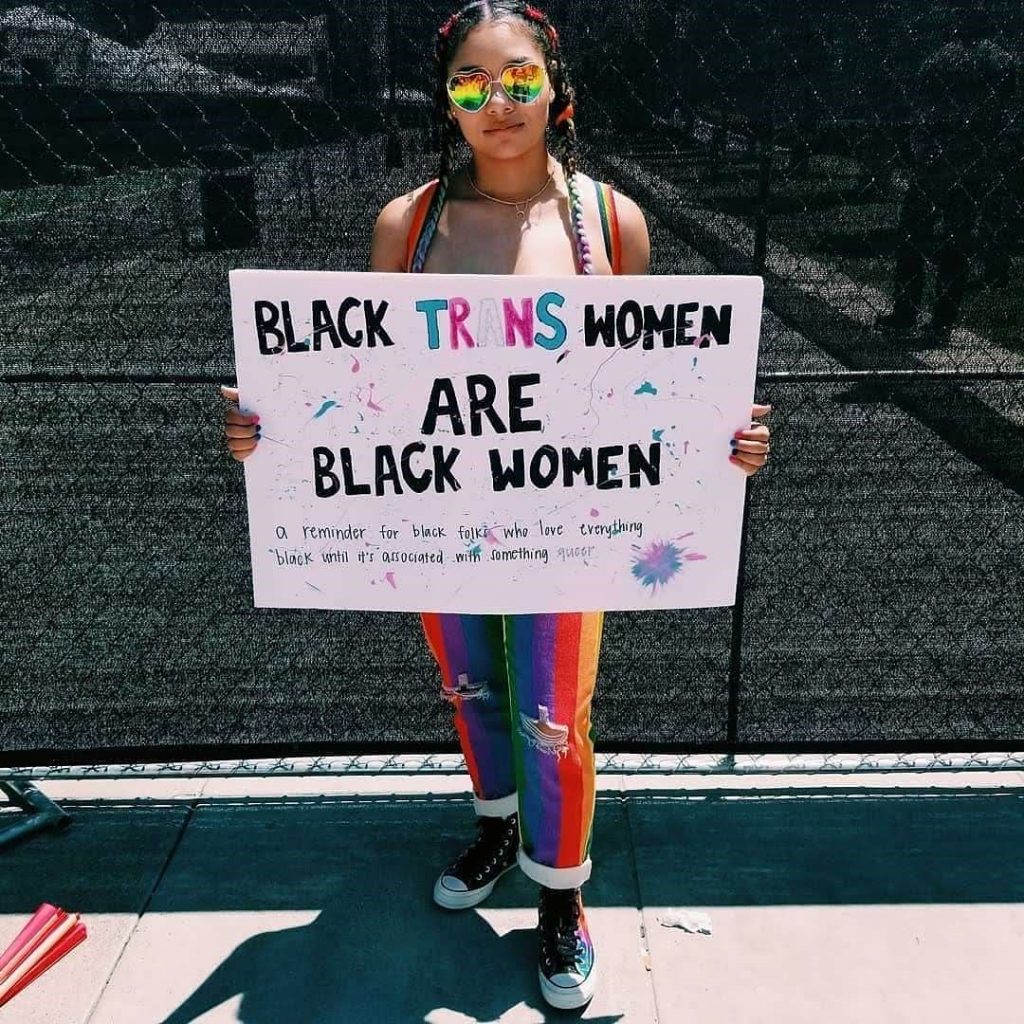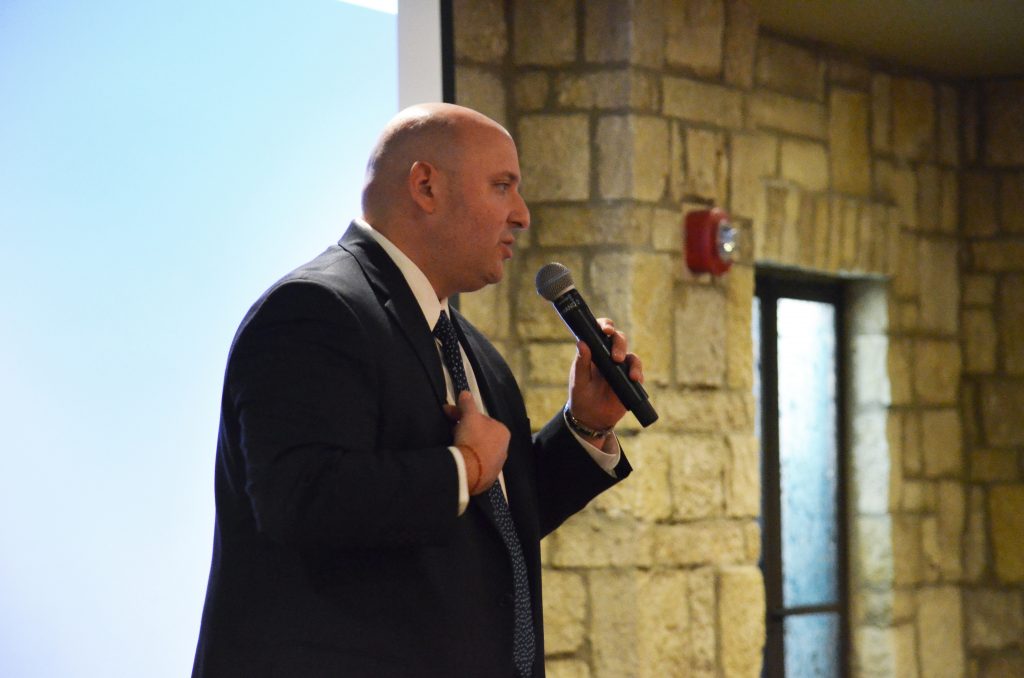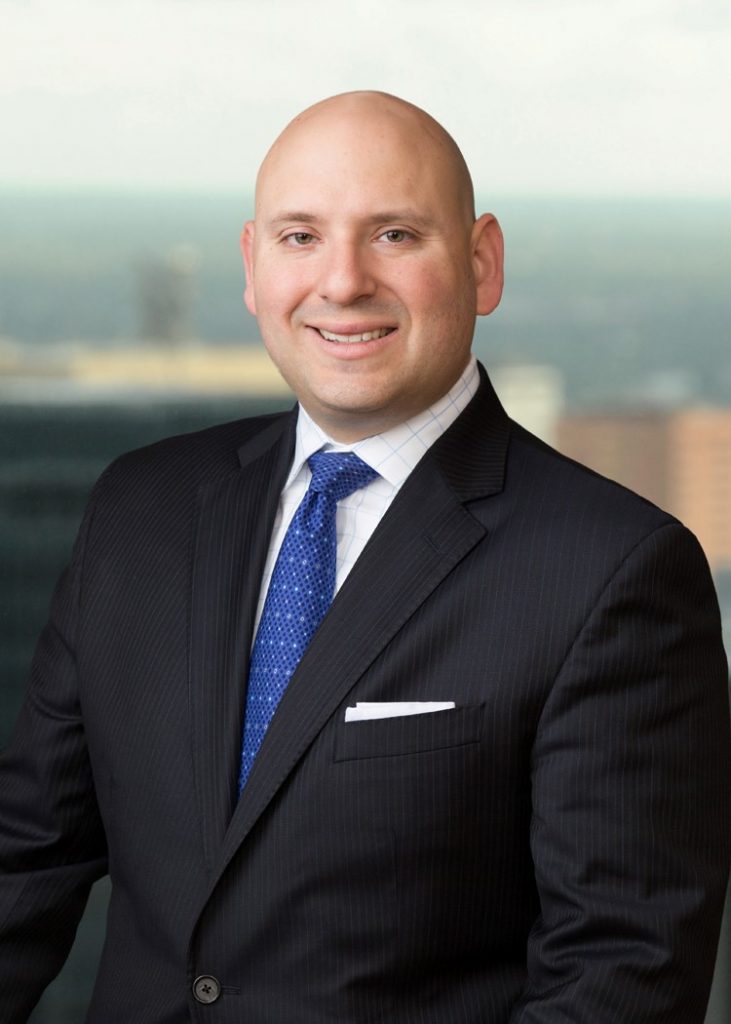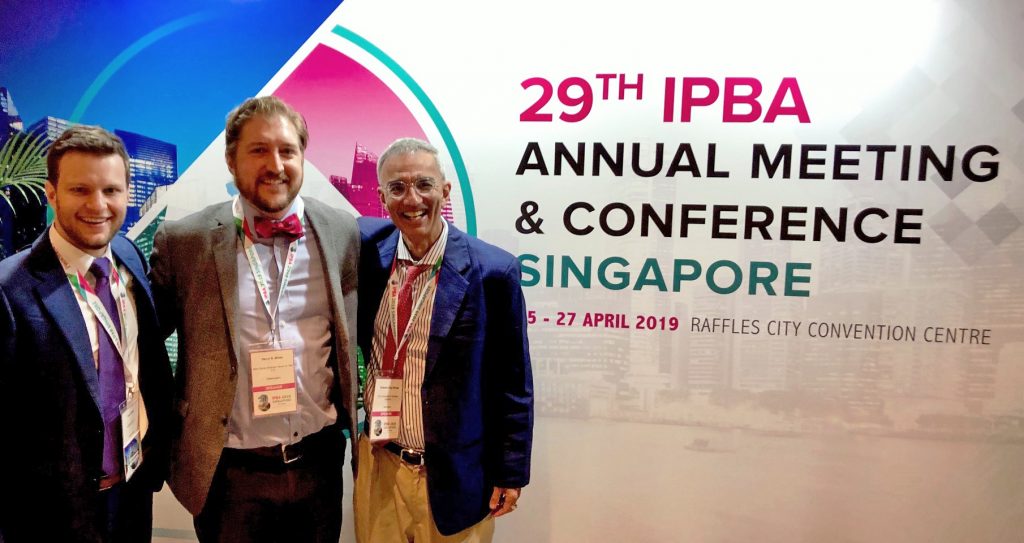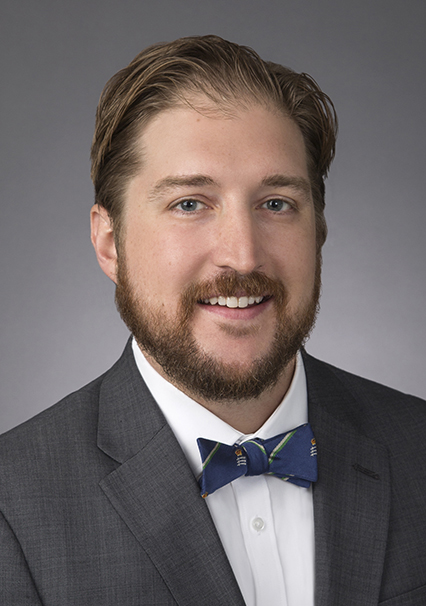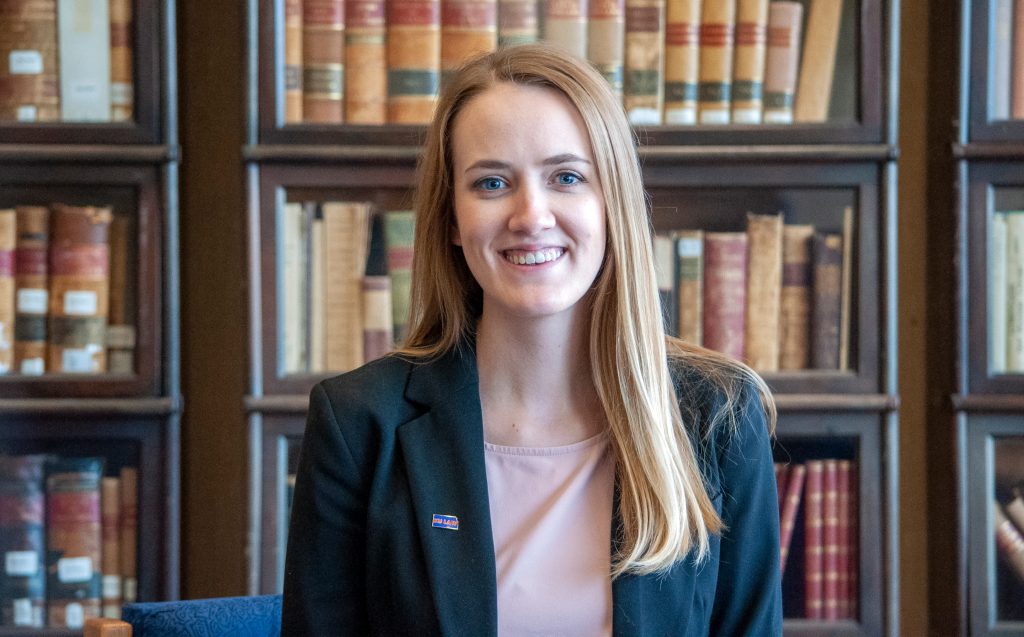KU Law’s curriculum equips law students with the legal knowledge and practice-ready skills needed to succeed.
In the past five years, six KU Law students have been selected to clerk at a U.S. Circuit Court of Appeals. A circuit clerkship is a prestigious and challenging post-graduate opportunity for law students to develop a relationship with a circuit court judge and to observe the legal practice in action.
Clerkships are available in both federal and state courts. Law students interested in applying for clerkships are aided by the law school’s Judicial Clerkship Committee and the Office of Career Services.
Circuit court clerkships
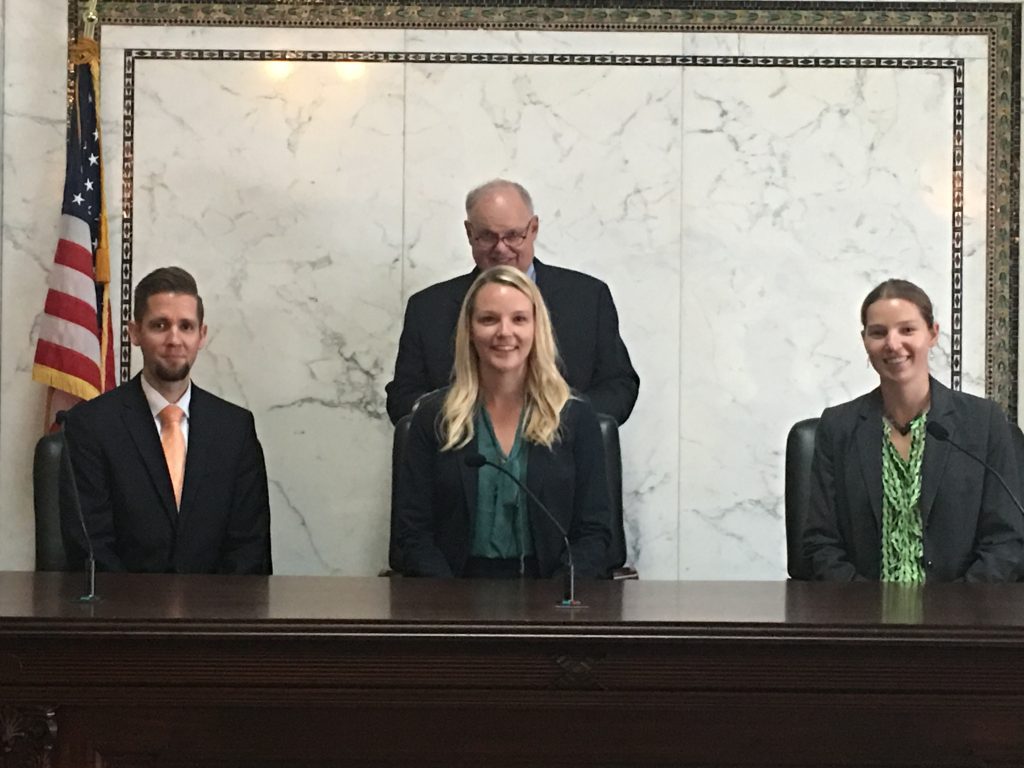
Ashley Akers, L’16
Ashley Akers, L’16, clerked for Judge N. Randy Smith at the U.S. Circuit Court of Appeals for the Ninth Circuit in Pocatello, Idaho.
“During my clerkship, I learned a tremendous amount about the practice of law in a short period of time, met and interacted with brilliant law clerks and judges from across the country, and, best of all, gained a lifelong mentor,” Akers said. “I know for certain that I am a better lawyer because of my clerkship.”
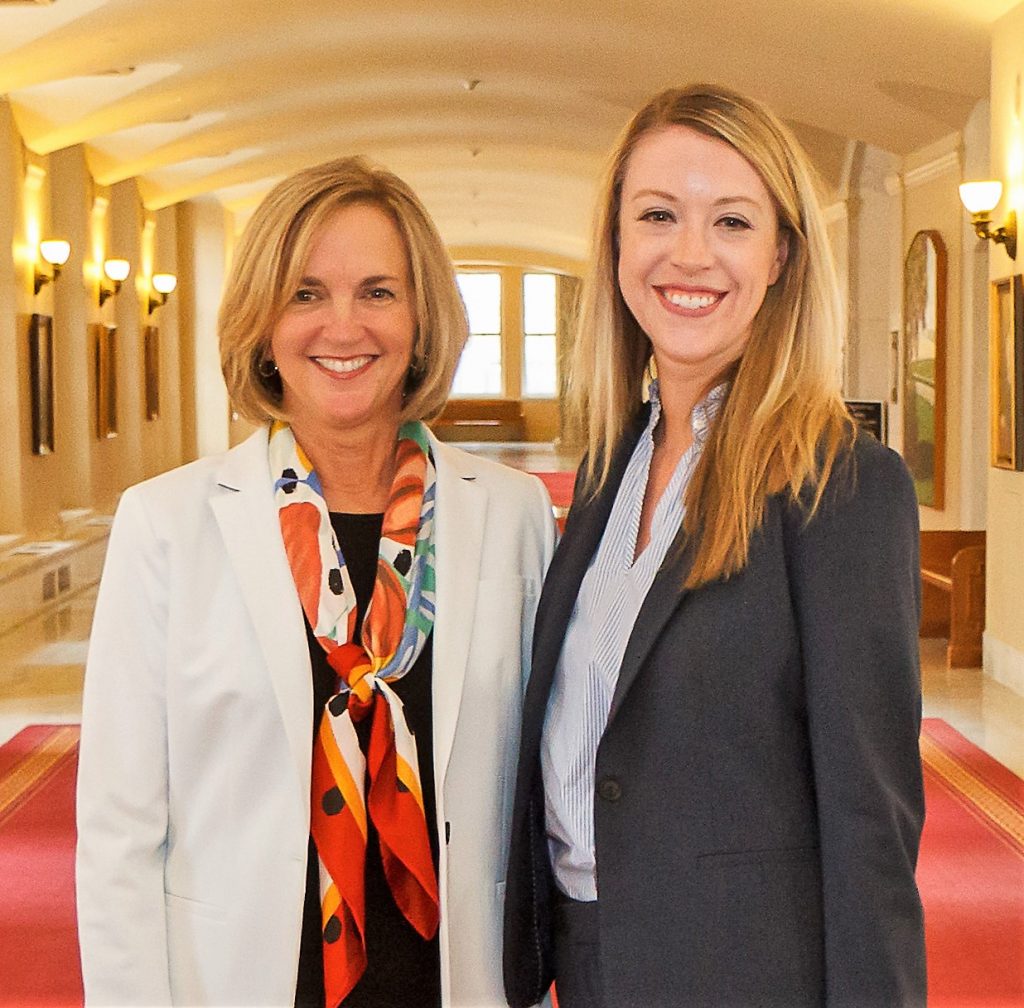
Sara Fevurly, L’16
Sara Fevurly, L’16, clerked for Judge Nancy Moritz at the U.S. Circuit Court of Appeals for the Tenth Circuit in Topeka.
“My experience as a circuit clerk was tremendously rewarding. Over the course of a year, my writing and critical thinking improved significantly,” Fevurly said. “I am eternally grateful to Judge Moritz for hiring me, teaching me and supporting me as I continue my legal career.”
In addition to Fevurly’s circuit clerkship, she also did a judicial clerkship. Fevurly clerked for Judge Julie Robinson at the U.S. District Court for the District of Kansas in Kansas City, Kansas.
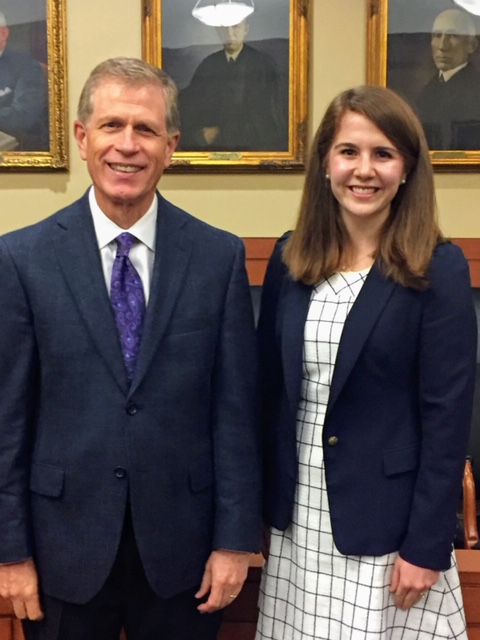
Maureen (Orth) Moeder, L’16
Maureen (Orth) Moeder did not one – but two – clerkships. Moeder, L’16, clerked for Judge Mary Murguia, L’85, at the U.S. Circuit Court of Appeals for the Ninth Circuit in Phoenix. She also clerked for Judge Daniel Crabtree at the U.S. District Court for the District of Kansas in Kansas City, Kansas.
“My clerkship experiences after law school were invaluable. Not only was I exposed to many different areas of law, I was also mentored by two extraordinary judges,” Moeder said. “Through both clerkships, I learned how to be a better legal writer and a better legal thinker.”
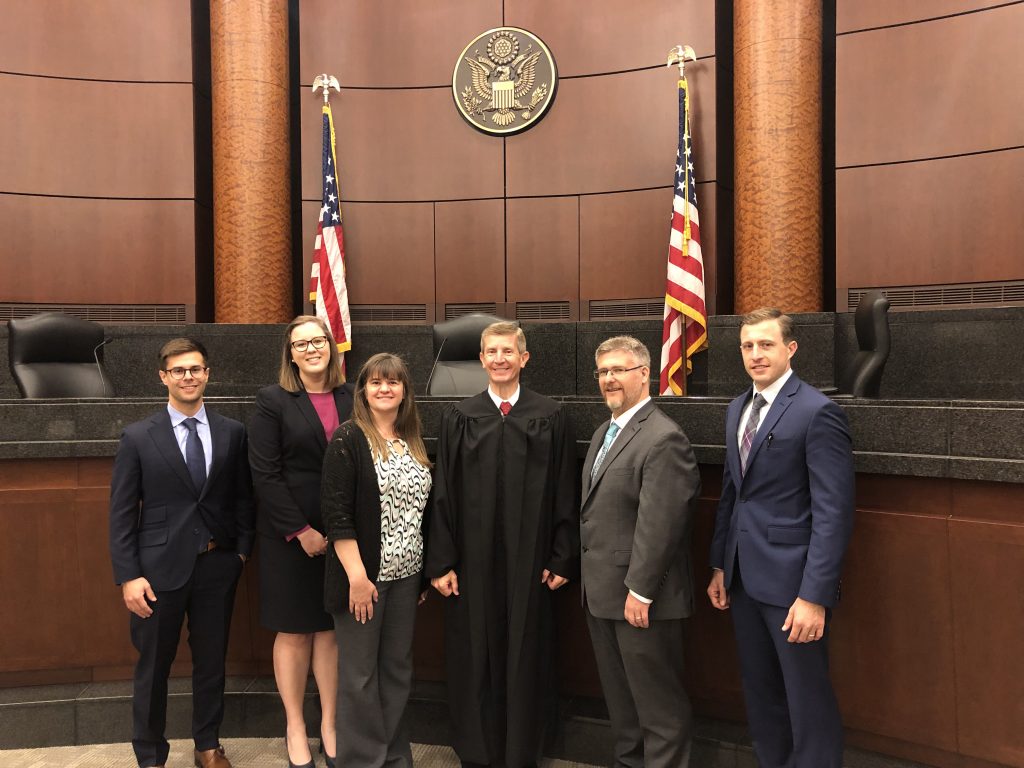
Michael Hayes, L’19
Michael Hayes, L’19, is currently clerking for Judge Steven Grasz on the U.S. Circuit Court of Appeals for the Eighth Circuit in Omaha, Nebraska.
“Clerking for Judge Grasz has been a great experience so far. It’s required me to dive deep into legal research and sharpen all the skills I’ve developed while in school,” Hayes said. “There are always opportunities to discuss legal questions and theories with the judge, which is an opportunity that few other legal jobs provide.”
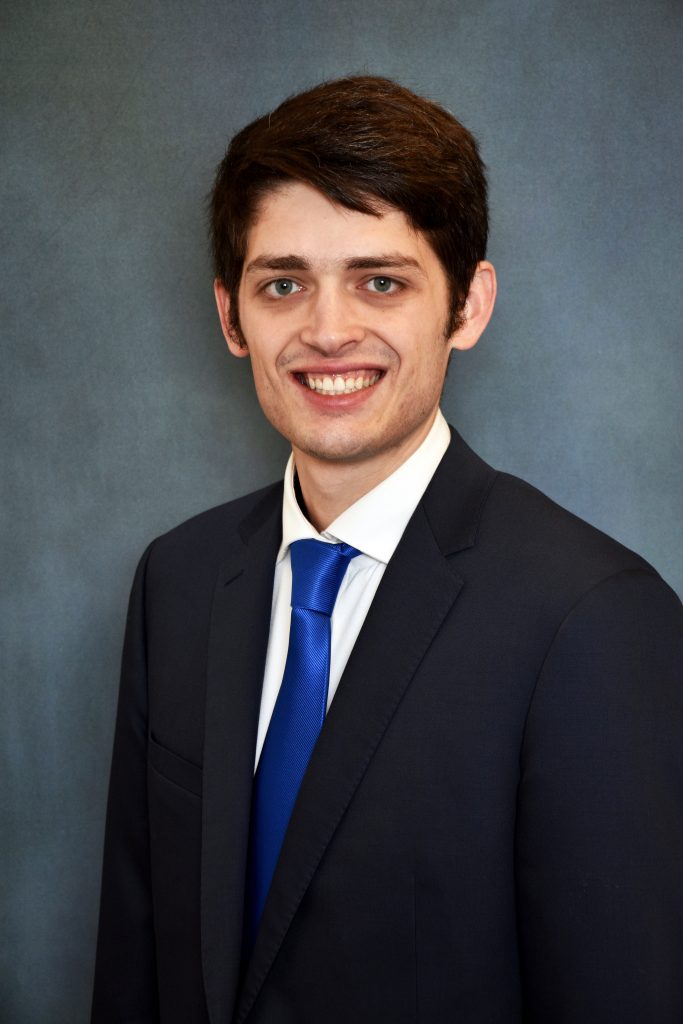
Chris Carey, L’19
Chris Carey, L’19, will clerk for Judge Nancy Moritz at the U.S. Circuit Court of Appeals for the Tenth Circuit in Topeka next year. Carey is currently doing a clerkship for Judge Steve Leben at the Kansas Court of Appeals in Topeka.
“For me, pursuing a circuit clerkship was a no-brainer. The prospect of getting to research and write every day on a wide variety of complex legal issues was simply irresistible. So too was the opportunity to work through those issues in a chambers environment where I could observe how judges decide cases at the appellate level. That kind of experience will be invaluable later in my career,” Carey said.
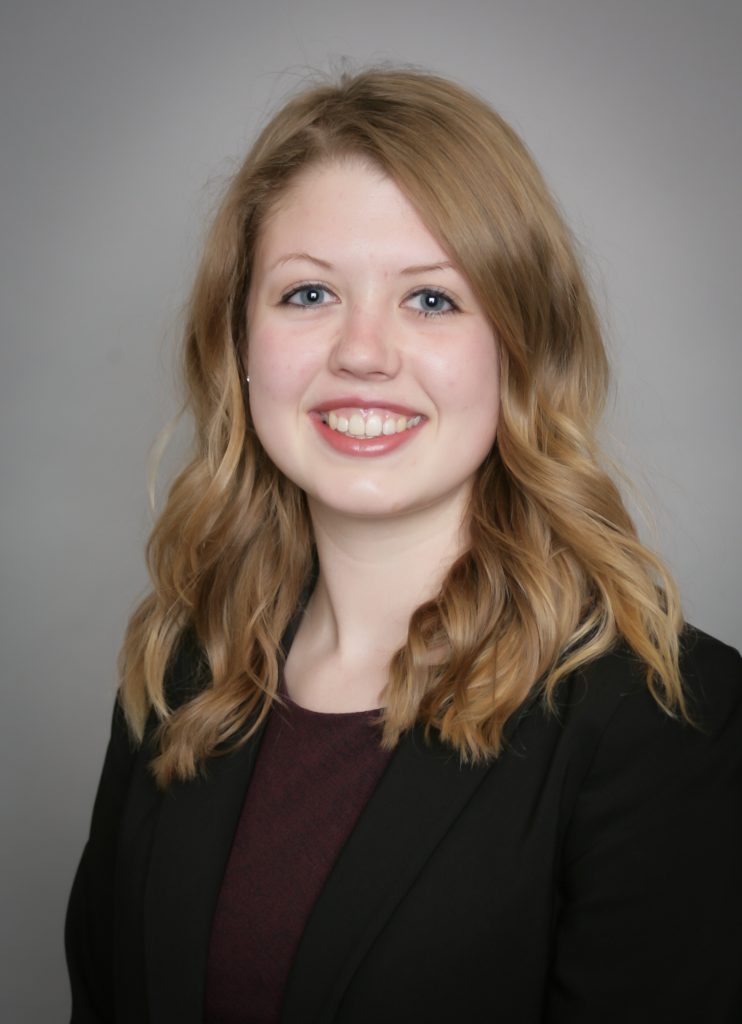
Cara Beck, L’20
Upon her graduation from law school in May, third-year law student Cara Beck will clerk for Judge Jonathan A. Kobes on the U.S. Circuit Court of Appeals for the Eighth Circuit in Sioux Falls, South Dakota.
“I chose to pursue a circuit court clerkship, so that I could have the opportunity to observe some of the best attorneys in the nation in action, both in brief-writing and oral arguments,” Beck said. “Clerking for Judge Kobes on the Eighth Circuit will be the most rewarding experience and will hopefully help shape me into a diligent and thoughtful advocate.”
Judicial clerkships
A considerable number of KU Law graduates accept judicial clerkships, including nine members of the Class of 2019. The school’s Judicial Clerkship Committee has overseen a doubling in the number of federal and state court clerkships obtained by law school graduates in recent years, including positions at prestigious federal courts of appeal.
Over the past five academic years, 30 students have secured clerkships.
Class of 2020
- Cara Beck – U.S. Circuit Court of Appeals for the Eighth Circuit
- Andi Leuszler – U.S. District Court of Kansas
- Joy Merklen – U.S. District Court of Kansas
Class of 2019
- Chris Carey – U.S. Circuit Court of Appeals for the Tenth Circuit; Kansas Court of Appeals
- Jeff Carmody – Kansas Court of Appeals
- Maria Drouhard – U.S. District Court of Missouri, Western District
- Michael Hayes – U.S. Circuit Court of Appeals for the Eighth Circuit
- Paul Keithley – Kansas Court of Appeals
- Nancy Musick – U.S. District Court of Kansas
- Ryan Ott – Kansas Court of Appeals
- Alex Rindels – U.S. District Court of Kansas
- Amelia Selph – Kansas Court of Appeals
Class of 2018
- Bradley Hook – Kansas Court of Appeals
- Sangeeta Shastry – U.S. District Court of Kansas
- Lindsay Strong – Kansas Supreme Court
- Ben Stueve – U.S. District Court of Missouri, Western District
Class of 2017
- Ethan Brown – Kansas Supreme Court
- Skyler Davenport – U.S. District Court of Kansas; Kansas Supreme Court
- Nathan Kakazu – U.S. District Court of Kansas
- Clay Nordsiek – U.S. Bankruptcy Court for the Western District of Missouri
- Hannah Schoeb – U.S. Bankruptcy Court for the Western District of Missouri
- Maggie Turek – Kansas Court of Appeals
- Eric Witmer – Kansas Supreme Court; 16th Judicial District Court of Jackson County, Missouri
Class of 2016
- Ashley Akers – U.S. Circuit Court of Appeals for the Ninth Circuit
- Benjamin Baumgartner – U.S. Court of International Trade
- Reid Day – U.S. District Court, Western District of Missouri
- Sara Fevurly – U.S. Circuit Court of Appeals for the Tenth Circuit; U.S. District Court of Kansas
- Maureen (Orth) Moeder – U.S. Circuit Court of Appeals for the Ninth Circuit; U.S. District Court of Kansas
- Kip Randall – U.S. District Court of Kansas
- Christopher Teters – Kansas Court of Appeals
— By Ashley Golledge
